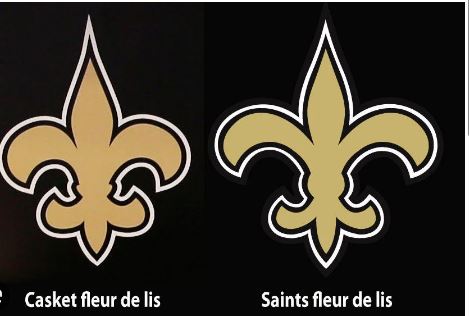CAFC Rejects Attempt to Cancel New Orleans Saints’ Fleur-de-Lis Trademark
The U.S. Court of Appeals for the Federal Circuit (CAFC) has dismissed an appeal by a private citizen seeking to cancel the New Orleans Saints’ trademark featuring a stylized fleur-de-lis, citing lack of standing.
In 2023, Michael Messier petitioned to revoke the Saints’ trademark, originally registered in 1974 for use in professional football-related entertainment services. Messier claimed to be a descendant of French royalty and asserted that his family held intellectual property rights to the fleur-de-lis and related marks like “Orleans” and “Saints.” He pointed to cease-and-desist letters the Saints had sent to small businesses in 2009, and proposed that if the cancellation failed, the trademark rights be transferred to his family. He suggested his family would then collaborate with small vendors and the broader community in managing the marks.
In response, the Saints described Messier’s filing as part of a long-running and baseless campaign against the team.
The Trademark Trial and Appeal Board (TTAB) initially dismissed the case but gave Messier the chance to file an amended petition. However, after the second filing also failed to meet legal standards, the Board dismissed the case again, stating Messier did not show a commercial interest in the mark or any reasonable belief that he had been harmed by its registration. The Board also rejected a surreply and additional attachments submitted after the briefing had closed.
On appeal, the CAFC affirmed the dismissal, concluding that Messier had not shown a concrete injury as required under Article III of the Constitution. The court noted that neither Messier nor his family claimed to be selling or offering any products or services using the fleur-de-lis, nor were they involved in entertainment services or any related commercial ventures involving the symbol.
Though Messier referenced his family’s historical use of the fleur-de-lis and suggested possible future licensing plans, the court found these arguments too speculative, labeling them as merely “hypothetical” and not sufficient to establish legal standing.





